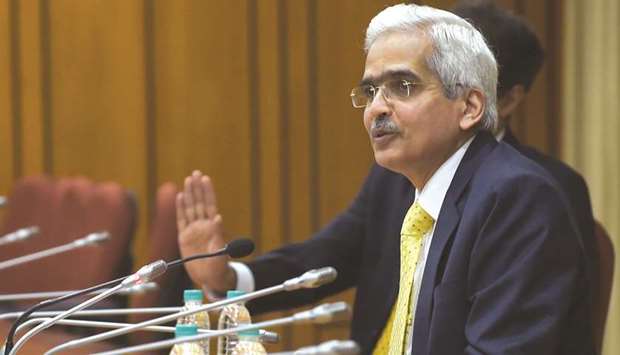India’s new central bank chief pledged yesterday to uphold the independence of the institution after his predecessor suddenly quit following a row over alleged government interference.
But Shaktikanta Das, seen as an ally of Prime Minister Narendra Modi, told his first press conference as governor that the Reserve Bank of India (RBI) would regularly hold consultations with the government.
“I will uphold the autonomy, integrity and credibility of the Reserve Bank of India as an institution,” the 63-year-old told reporters in Mumbai.
He added that the government was not just a stakeholder but runs the economy, so there has to be “free, fair, objective and very frank discussions” between it and the RBI.
“I would like to believe that all issues, however contentious, can be resolved through discussions,” he said. Das was appointed the bank’s boss on Tuesday, a day after Urjit Patel resigned following months of tensions with Modi’s administration over attempts to influence policy.
Patel cited “personal reasons” for his decision but experts and media reports have said he was annoyed by New Delhi’s repeated efforts to impose its influence.
Das is a former senior finance ministry official and a key figure in Modi’s controversial “demonetisation” scheme of November 2016 which scrapped 86% of banknotes overnight.
He is close to Modi and Finance Minister Arun Jaitley, leading some analysts to say that his appointment means the Bharatiya Janata Party-led government will hold greater sway over RBI decision-making.
Other experts say he will be effective at building a bridge between the two feuding institutions, which could help boost Asia’s third-largest economy. Indian business dailies reported in October and November that the government had invoked never-before-used powers to send at least three letters to Patel seeking to direct policy.
Viral Acharya, a deputy RBI governor, warned the government in a strongly worded speech in October that undermining the bank’s independence could be “potentially catastrophic”.
The government is believed to be unhappy with the RBI over a number of issues including its handling of interest rates, the tightening of lending norms and how to deploy reserves.

Reserve Bank of India governor Shaktikanta Das speaks to the media after taking charge at the bank’s head office in Mumbai yesterday. India’s new central bank chief pledged to uphold the independence of the institution after his predecessor suddenly quit following a row over alleged government interference.
